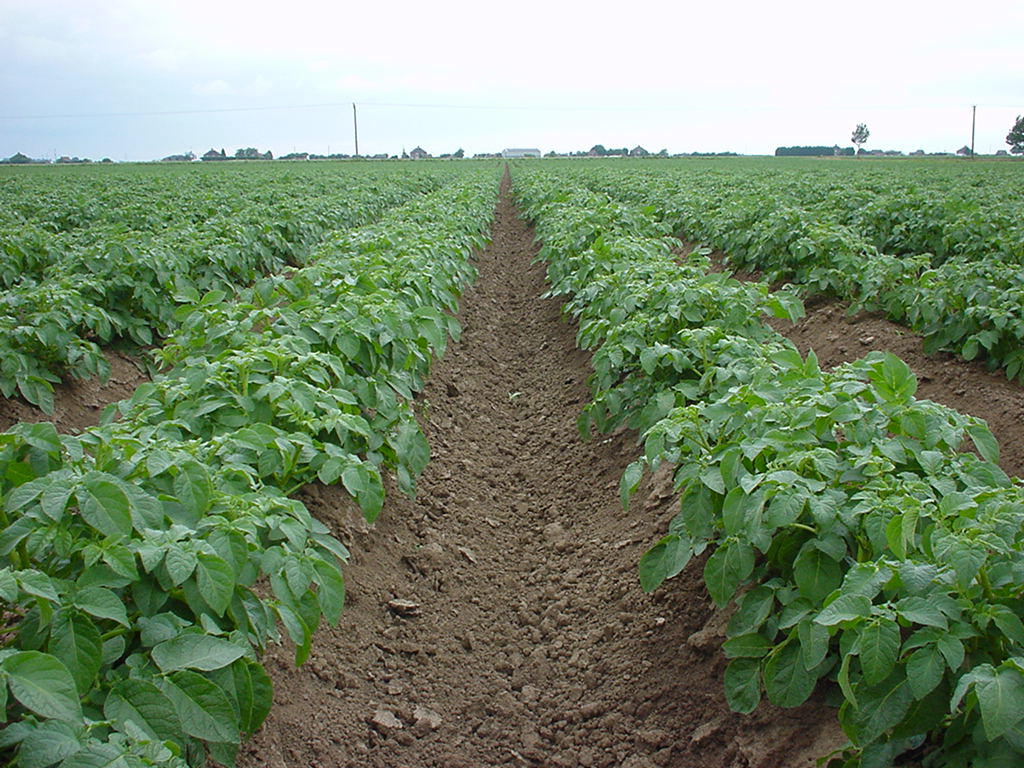
Potato growers are continuing to rethink their weed control strategies following the loss, or restriction in use, of some key active ingredients in the last few years and are finding new ways of using the remaining herbicide tools they have.
The loss of paraquat and the rate restriction on linuron has thrown up some new challenges in weed control and UAP trials have suggested that a mix of metribuzin and pendimethalin could be a useful treatment to consider this year. According to Barrie Florendine, potato agronomist who managed these trials on behalf of UAP, this mix gave good control of Cut-leaved Crane’s-bill, Fat-hen, Knot-grass and Mayweed as well as Sow-thistle. "This mix gave adequate grass-weed control and improved broad-leaved weed control. The pendimethalin in Stomp Aqua has a long half-life and so gives good persistent weed control, which is what is wanted."
According to Phil Brown of BASF, the loss of PDQ (diquat + paraquat) has meant that growers are left to choose between the existing contact materials which just do not have the same range of grass or broad-leaved weed activity nor the timing flexibility for post-emergence applications. "Consequently this has led to a revived interest in the use of Stomp 400 SC and Stomp Aqua. Pendimethalin is regarded as a very effective and safe residual herbicide in many other crops and it is now finding its place in potatoes. Its longer persistence is a real advantage in potatoes, especially as it is applied that little bit earlier than other residuals, at least seven days before emergence."
"This earlier window means that growers can get the job done and not be caught out by wet weather or difficult travelling conditions later in the season when the potatoes are closer to emergence."
Phil points out that Stomp has an excellent reputation for grass-weed activity on Annual Meadow-grass, Black-grass and other grass-weeds, but it also has a good broad-leaved weed spectrum for potatoes including Chickweed, Fat-hen, Knotgrass, Hemp Nettle, Red Dead-nettle, Small Nettle and Speedwells. He advises that it should always be mixed with another residual such as Sencorex (metribuzin) or linuron to fill any gaps in the weed spectrum such as Charlock and Mayweeds.
"New this year for potato growers is the new encapsulated pendimethalin formulation, Stomp Aqua. It has advantages over other pendimethalin formulations with no odour, produces much less staining and offers easier and faster washing of container and equipment. It also shows excellent crop safety," says Mr. Brown.
BASF can also offer an alternative post-emergence graminicide in potatoes, Laser (cycloxydim). "In most situations grass-weeds are tackled pre-emergence. Laser plus adjuvant offers an effective post emergence option for the control of a number of grass-weeds such as Meadow-grass, Wild-oats, Black-grass, Rye-grass and Bents."
"Similarly if your need to get rid of broad-leaved weeds post-emergence, Basagran (bentazone) is one of very few options available in potatoes. Included on its susceptible weed list are Charlock, Chickweed, Cleavers, Crane’s-bill, Mayweeds, Black nightshade and a range of polygonums. It should be applied when the weeds have emerged and are at cotyledon to seedling stage, but before most of the crop has reached a height of 15cms. You’ll also need to check your varieties," warns Phil. Varieties can be checked by calling the Technical Services Hotline on 0845 602 2553.
For further comment and information please contact Phil Brown, BASF on 0783 6325718 (mobile)
